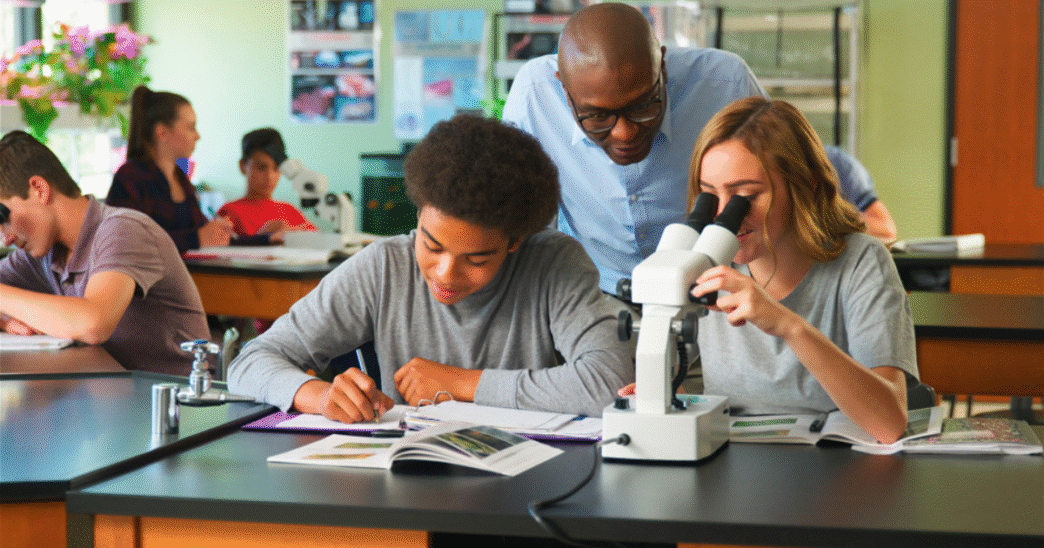Science can be a thrilling yet challenging subject for secondary school students. From mastering the periodic table to understanding Newton’s laws, the demands of secondary science curricula often require extra support to excel. This is where a science tuition centre for secondary students steps in, offering tailored guidance to unlock academic potential. But with so many options available, how do you choose the right one? In this comprehensive guide, we’ll explore the benefits of science tuition, what to look for in a centre, and how it can transform a student’s academic journey.
Why Secondary Students Need Science Tuition
Secondary school marks a critical phase in a student’s education. The science syllabus—covering biology, chemistry, and physics—becomes more complex, requiring not just memorization but a deep understanding of concepts. Many students struggle to keep up with the pace, especially when balancing multiple subjects and extracurricular activities. A dedicated science tuition centre bridges this gap by offering personalized attention and structured learning.
For instance, a student grappling with chemical equations might feel overwhelmed in a crowded classroom. In a tuition setting, tutors can break down these concepts into manageable steps, using real-world examples like comparing chemical reactions to cooking recipes. This approach makes learning relatable and less intimidating. Moreover, tuition centres often provide practice papers and mock exams, helping students build confidence for high-stakes tests like the O-Levels or IGCSE.
Beyond academics, science tuition fosters critical thinking and curiosity. A good centre doesn’t just teach formulas; it encourages students to ask questions like, “Why does the sky appear blue?” or “How do ecosystems maintain balance?” This nurtures a lifelong love for science, which is invaluable in today’s innovation-driven world.
What Makes a Great Science Tuition Centre?
Not all tuition centres are created equal. To ensure your child gets the most out of their science tuition, consider these key factors when choosing a centre.
1. Qualified and Passionate Tutors
The heart of any tuition centre is its teachers. Look for centres staffed by tutors with strong academic credentials and a knack for simplifying complex topics. A tutor who can explain photosynthesis in a way that sparks a student’s imagination is worth their weight in gold. Check if the tutors have experience teaching secondary-level science and are familiar with the local syllabus, whether it’s MOE, IB, or Cambridge.
2. Small Class Sizes
Personalized attention is a game-changer. Centres with small class sizes—ideally 5 to 10 students—allow tutors to address individual weaknesses. This is especially crucial for science, where students may struggle with specific topics like organic chemistry or kinematics. Avoid centres that pack dozens of students into a room, as this mimics the classroom environment many are trying to escape.
3. Engaging Teaching Methods
Dry lectures and endless worksheets won’t cut it. The best science tuition centres use interactive methods like hands-on experiments, visual aids, and even virtual simulations. For example, a centre might use a model rocket to teach projectile motion or a microscope to explore cell structures. These activities make abstract concepts tangible and memorable.
4. Customized Learning Plans
Every student learns differently. A top-tier centre assesses each student’s strengths and weaknesses to create a tailored study plan. If a student excels in biology but struggles with physics, the centre should allocate more time to mechanics while reinforcing biology through advanced challenges. Regular progress reports also keep parents in the loop.
5. Focus on Exam Strategies
While understanding concepts is crucial, secondary students also need to master exam techniques. A good tuition centre teaches time management, question analysis, and how to structure answers for maximum marks. For instance, in a chemistry paper, students might learn to prioritize balancing equations before tackling long-answer questions.
6. Supportive Environment
Learning thrives in a positive atmosphere. The best centres create a space where students feel comfortable asking questions and making mistakes. Look for reviews or testimonials from parents and students to gauge the centre’s culture. A nurturing environment can boost a student’s confidence, making them more willing to tackle challenging topics.
Benefits of Enrolling in a Science Tuition Centre
Enrolling in a science tuition centre offers more than just better grades. Here are some key advantages:
- Improved Academic Performance: Targeted lessons and regular practice help students master difficult topics, leading to higher scores in school assessments and national exams.
- Boosted Confidence: As students gain clarity on concepts, their self-assurance grows, reducing exam anxiety.
- Time Management Skills: Structured tuition schedules teach students to prioritize tasks, a skill that benefits them beyond academics.
- Preparation for Future Studies: A strong foundation in secondary science paves the way for advanced studies in fields like medicine, engineering, or environmental science.
- Holistic Development: Group discussions and collaborative projects in tuition classes enhance communication and teamwork skills.
How to Choose the Right Centre for Your Child
Selecting a science tuition centre requires careful research. Start by shortlisting centres with a strong reputation for secondary science. Visit their websites, read parent reviews, and check if they offer trial classes. A trial session lets your child experience the teaching style and environment firsthand.
Next, consider logistics. Is the centre’s location convenient? Are the class timings flexible enough to fit your child’s schedule? Some centres also offer online classes, which can be a boon for busy families. However, ensure the online platform is interactive and not just a series of pre-recorded videos.
Budget is another factor. While quality education is an investment, compare fees to ensure they align with the centre’s offerings. Some centres provide discounts for siblings or long-term commitments, so inquire about these options.
Finally, involve your child in the decision. Ask what they want from tuition—whether it’s help with specific topics or a more engaging way to learn. A centre that aligns with their needs and learning style is more likely to yield results.
Common Myths About Science Tuition
Some parents hesitate to enroll their child in tuition due to misconceptions. Let’s debunk a few:
- Myth 1: Tuition is only for struggling students. Not true! Even high-achievers benefit from advanced challenges and exam strategies offered by tuition centres.
- Myth 2: Tuition replaces school learning. Tuition complements school education by reinforcing concepts and addressing gaps.
- Myth 3: All centres are the same. As discussed, centres vary widely in teaching quality, class size, and approach. Research is key.
Final Thoughts
A science tuition centre for secondary students can be a game-changer, transforming confusion into clarity and fear into fascination. By choosing a centre with qualified tutors, small classes, and engaging methods, you’re setting your child up for academic success and a deeper appreciation of science. Take the time to explore options, attend trial classes, and involve your child in the process. With the right support, they’ll not only ace their exams but also discover the joy of unraveling the mysteries of the universe.




